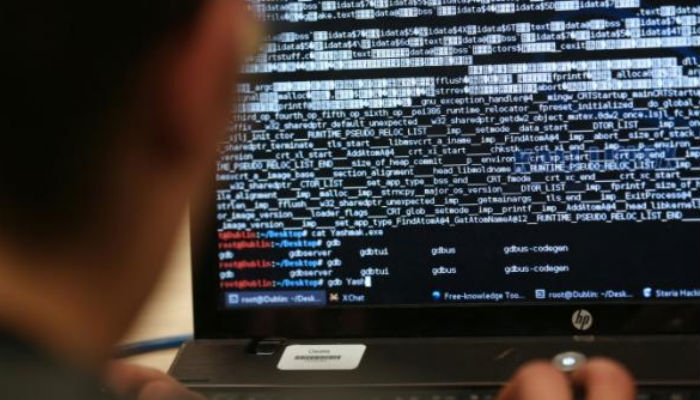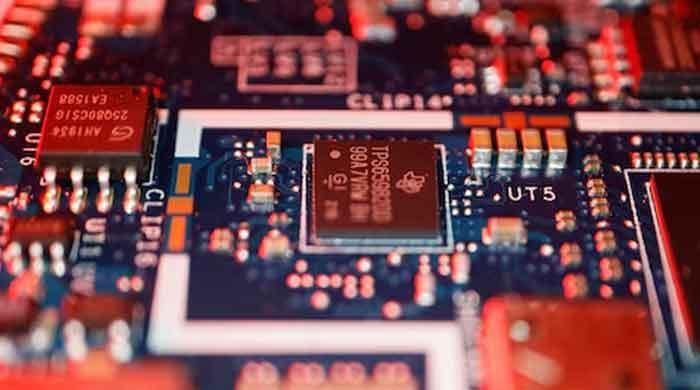Mafia spectre haunting Italy spreading to cyberspace
Gangrenous and omnipresent in the south, the country´s various criminal networks are as powerful as ever
November 24, 2017

MILAN: A week after the death of Cosa Nostra boss Toto Riina, key figures in Italy´s judiciary and police have warned the mafia´s tentacles are extending into the virtual world.
Gangrenous and omnipresent in the south, the country´s various criminal networks are as powerful as ever and are also developing in the wealthier, industrialised north, a major conference on the fight against organised crime was told.
"The mafia has not won, but it has not lost either," Justice Minister Andrea Orlando said in the keynote speech.
The two-day gathering, which concluded Friday, was the culmination of a year of research and reflection involving more than 220 experts.
"For years we have had the most extensive anti-mafia legislation in place, we have been mounting operations non-stop for 25 years, how is it possible that the mafias can still be so powerful?" asked Franco Roberti, who was the national anti-mafia prosecutor until last week.
Thousands of mobsters are behind bars and more than 30 billion euros ($35 billion) of ill-gotten assets have been seized in the last two decades.
Yet still the clan and family-based networks of ´Ndrangheta (based in Calabria in Italy´s deep south), the Camorra (in and around Naples), Cosa Nostra (Sicily) and the lesser-known Sacra Corona Unita (Puglia), continue to flourish, at home and abroad.
"They accumulate money in incredible proportions, and this cash ends up in our economy, in companies, in activities that are often run by honest and respectable people," said Roberti´s successor, Federico Cafiero De Raho.
Not just drugs
"When they move their companies into a particular sector, they grab the whole market for themselves," he adds. "That is how it works in the centre and north of the country - in the south they are everywhere."
A report presented at the conference noted that Milan, the economic capital of the industrial north, was now third in the ranking of areas by the value of assets seized from the mafia, behind Palermo (capital of Sicily) and Naples.
"Within a few years, it is plausible to envisage Lombardy (the region including Milan) and Latium (Rome and its surrounds) overtaking Calabria and Puglia and getting to the level of Naples and Sicily (in terms of mafia infiltration)," the report warns.
Drugs, from street dealing to international trafficking on a major scale, are at the core of all the Italian mafias´ activities.
But their tentacles also stretch into supermarkets, restaurants and bars, construction, farming and all forms of food production, sport, people trafficking and refuse management.
"The persistence of the mafia is not an accident of history," noted the Justice Minister.
"It tells us something profound; it is a reflection of a social and political crisis."
'Bitcoin mafia'
"Mafia power fills a vacuum, it depends on the state withdrawing, on the weakness of civil society, on problems of integration. It slips into the fissures, taking advantage of the slightest weakness to get stronger.
"Our enemies are proactive, dynamic and multifaceted. They are capable of adapting to social and economic change."
One example is that contemporary mobsters order the killings of fewer people than the likes of Riina, the Sicilian godfather who died last week.
Aged 87, the "boss of all bosses" was serving 26 life sentences for some of the 150 murders he is thought to have ordered.
Corruption, Riina´s successors have realised, is more efficient than the threat of violence.
"They´ve stopped using arms and explosives to do their talking but they´ve found more insidious methods,´ said Pietro Grasso, a judge who presided over some of the biggest mafia trials and is now the president of the Senate.
The famous "pizzini", tiny scraps of paper used to transmit coded messages between made men, have been replaced by briefcases. Funds are now more likely to be stored in the form of Bitcoin than notes stuffed in milk churns.
"Cyberspace is so much a part of our daily life now but there is no system of regulation and control, and we are starting to see some very sophisticated forms of criminality take shape there," said Alessandro Pansa, a former chief of the national police.
"The Bitcoin mafia will replace the mafia we know, but it will always be the mafia."











